Adaptive physical education: The key to get kids moving!
December 12, 2024
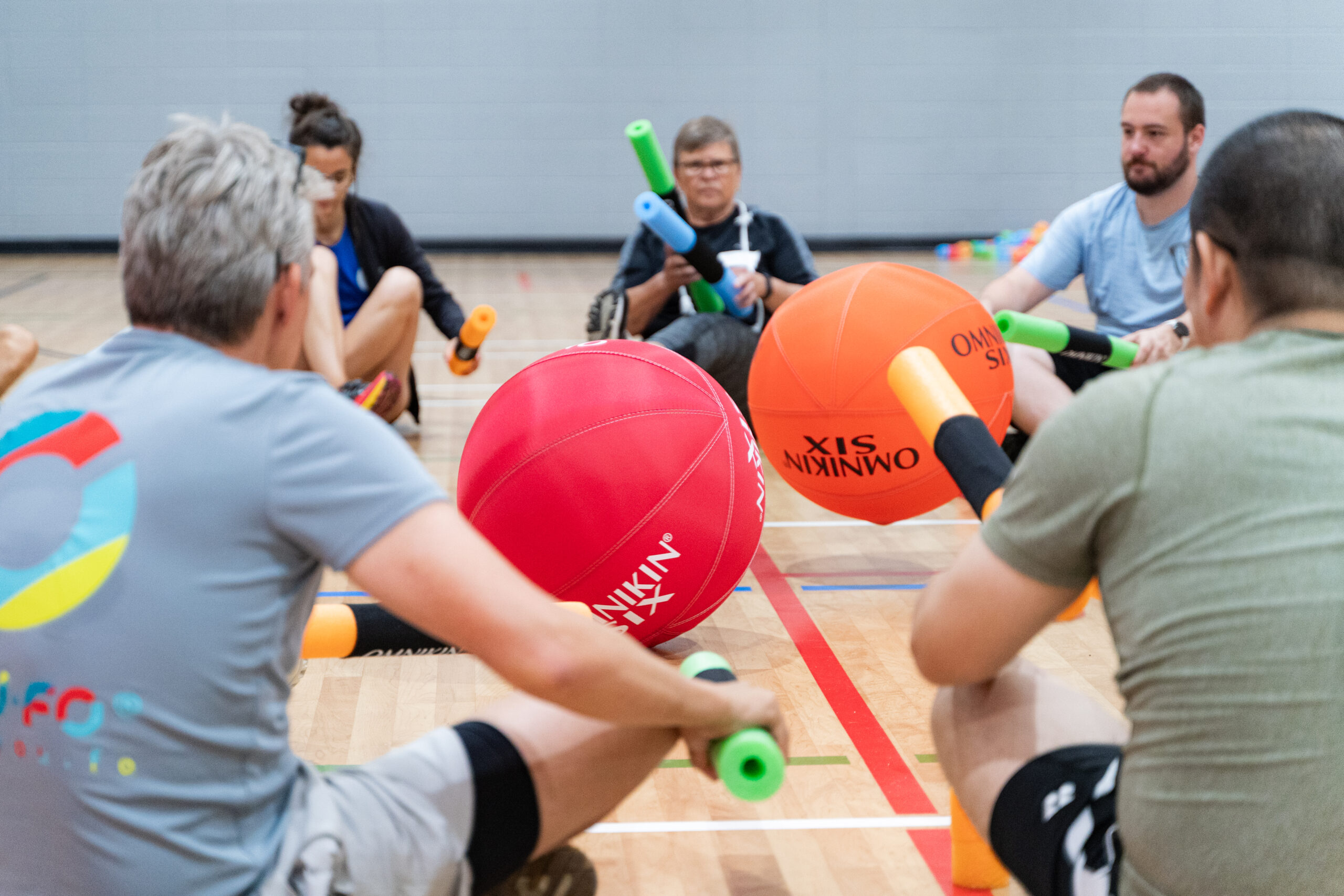
Inclusive physical education, also known as adaptive physical education (APE) is a specialized field that requires educators to have tools and training in adaptive methods. Professional development in APE can make a meaningful difference in how students with special needs engage with physical education. Teachers, school staff, and administrators gain hands-on experience and practical knowledge that enhances their ability to work with diverse needs.
A study published in the Journal of Physical Education and Sport found that professional development workshops in adaptive PE improve teachers’ skills to implement inclusive strategies effectively (Healy et al., 2019). In addition, another study reports that well-trained PE teachers are better equipped to understand the individual challenges faced by students with mobility limitations, resulting in higher student engagement and physical performance.
What is adaptive physical education?
Adaptive physical education (APE) involves modifying traditional PE activities to meet the individual physical, social, and emotional needs of special needs students. APE programs may use specialized equipment, like Omnikin’s large, lightweight balls, which can be easier for students to control, supporting motor skills while building confidence and collaboration. APE ensures that PE remains inclusive, where every student, regardless of ability, has the opportunity to participate, learn, and grow.
APE goes beyond simply modifying activities. Key components include:
- Assessment – Determining each student’s unique needs and goals.
- Adaptation – Adjusting equipment, space, and rules to support diverse abilities.
- Engagement – Fostering a positive, encouraging environment that promotes participation.
Benefits for physical education for special needs students
Adaptive physical education classes provide more than just physical activity for special needs students; it’s a vital tool for their holistic development. From boosting motor skills to enhancing social interactions, APE fosters growth across physical, social, and emotional areas, inspiring students to thrive in both school and life.
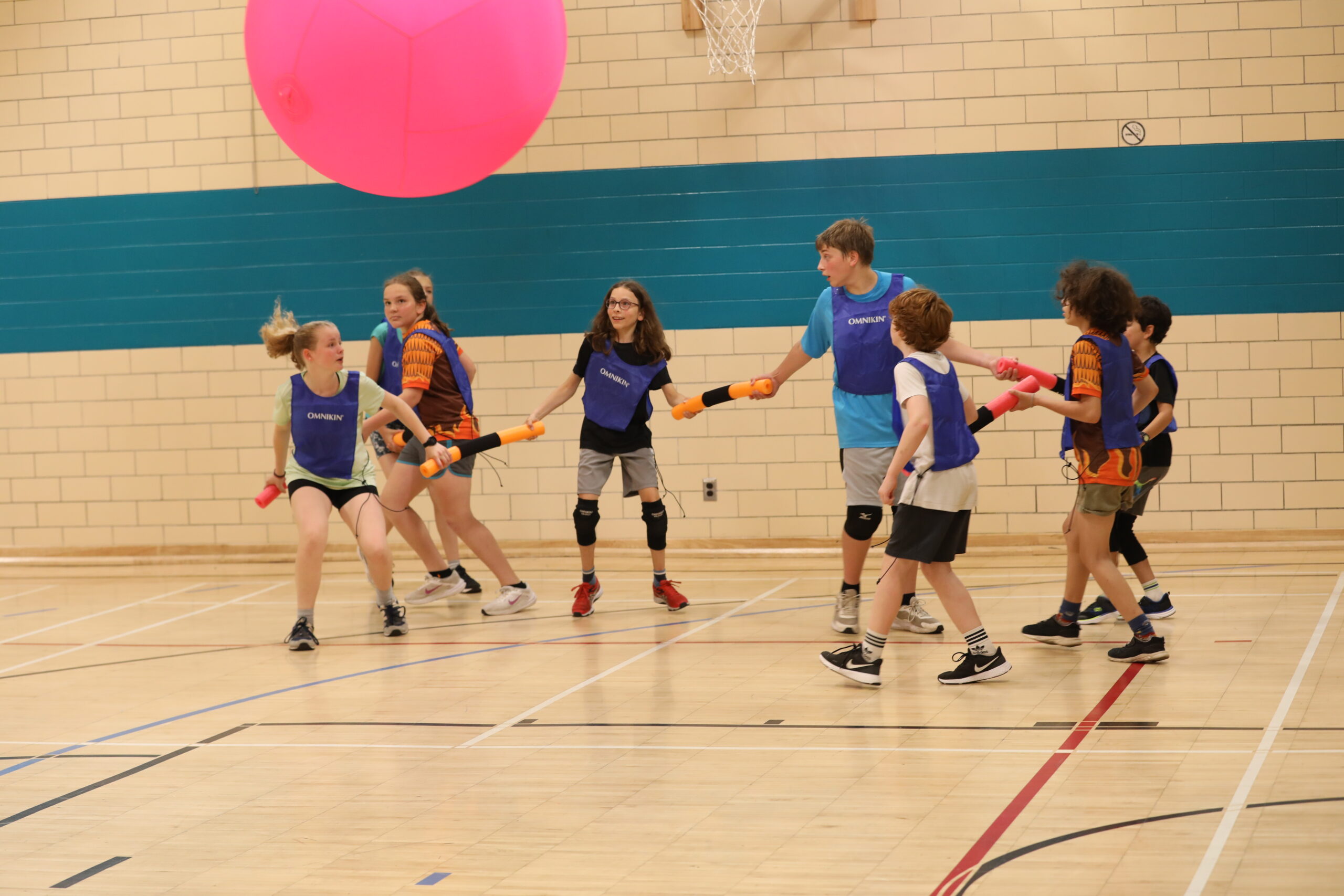
Improved motor skills and physical fitness
APE helps special needs students develop motor skills at a pace suited to their abilities. By using adaptive equipment like oversized balls or lightweight items, students improve coordination, balance, and strength. Omnikin’s large, lightweight balls, for instance, are ideal for developing hand-eye coordination without overwhelming students who may have limited strength or motor control in handling conventional PE equipment.
Enhanced social skills and peer interactions
According to studies, the benefits of adapted physical activities with students with special needs include increased self-esteem, motor function and coordination, aerobic capacity and mental health well-being. (Jason Mazzuca, 2024)
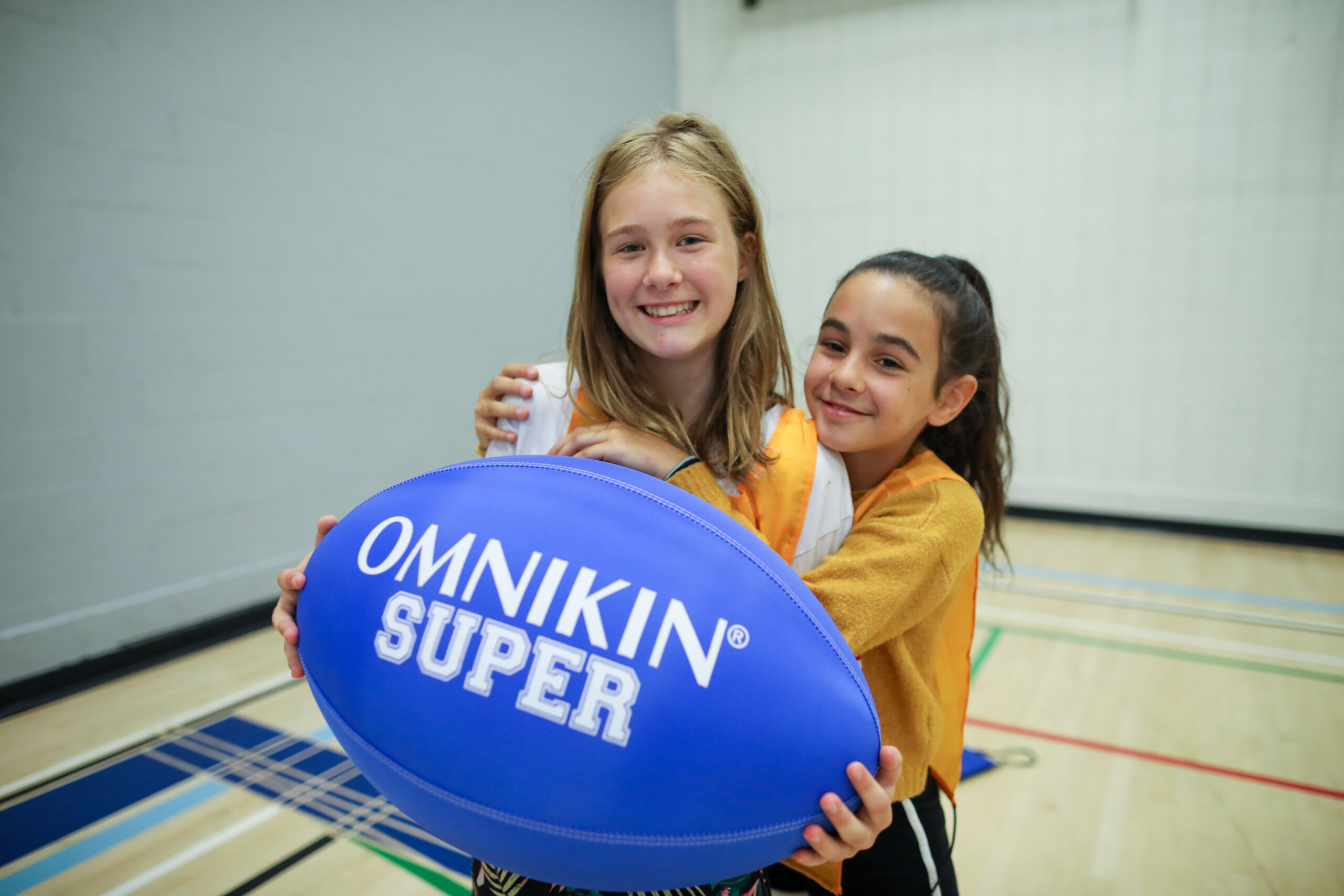

Boosted self-esteem and emotional well-being
Participating in adaptive PE can significantly improve a special needs student’s emotional health. As they master new skills and overcome physical challenges, students experience a sense of accomplishment. For instance, a student with Down syndrome successfully participating in a modified basketball game might experience a profound boost in assuredness that extends beyond the gym into other areas of their life.
Inclusive PE Workshops by Omnikin
Omnikin’s PE workshops equip educators with the knowledge, skills, and resources to create a truly inclusive physical education environment. These workshops provide hands-on experience and practical strategies to help teachers feel confident in adapting activities for students of all abilities.
Here are some of the concepts that Omnikin PE workshops cover

Understanding the principles of inclusive PE
Omnikin’s workshops start with the foundational principles of inclusive PE, covering topics like accessibility, empathy, and student-centred learning. Educators learn how to adapt activities that cater to varying physical abilities, ensuring all students can actively participate.
Learning to adapt traditional PE activities for diverse abilities
Incorporating inclusive practices means transforming traditional games and activities to be suitable for different skill levels. Omnikin’s workshops demonstrate how to adjust game rules, adapt equipment, and create flexible activity structures, making games accessible and engaging for everyone.
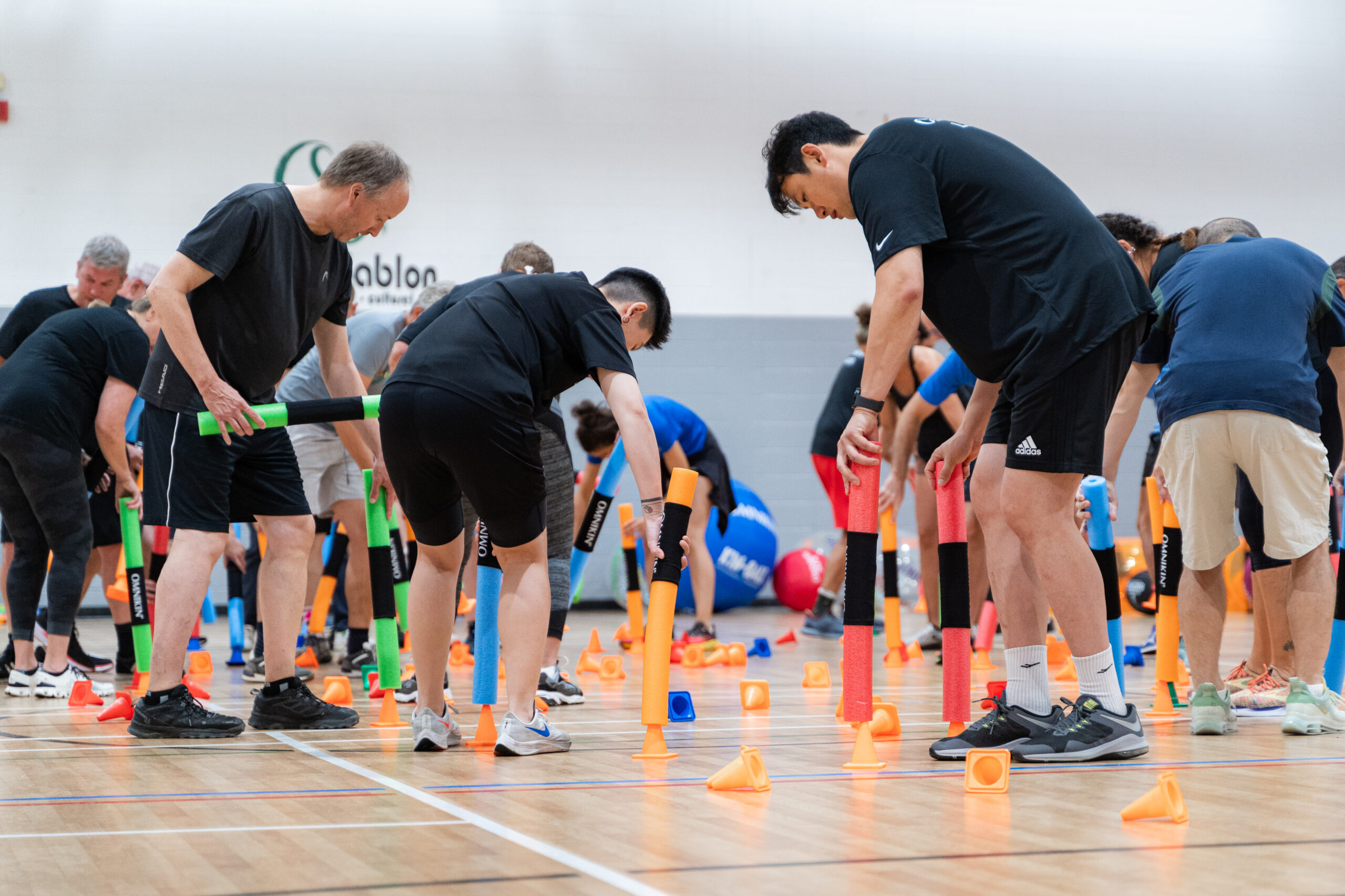
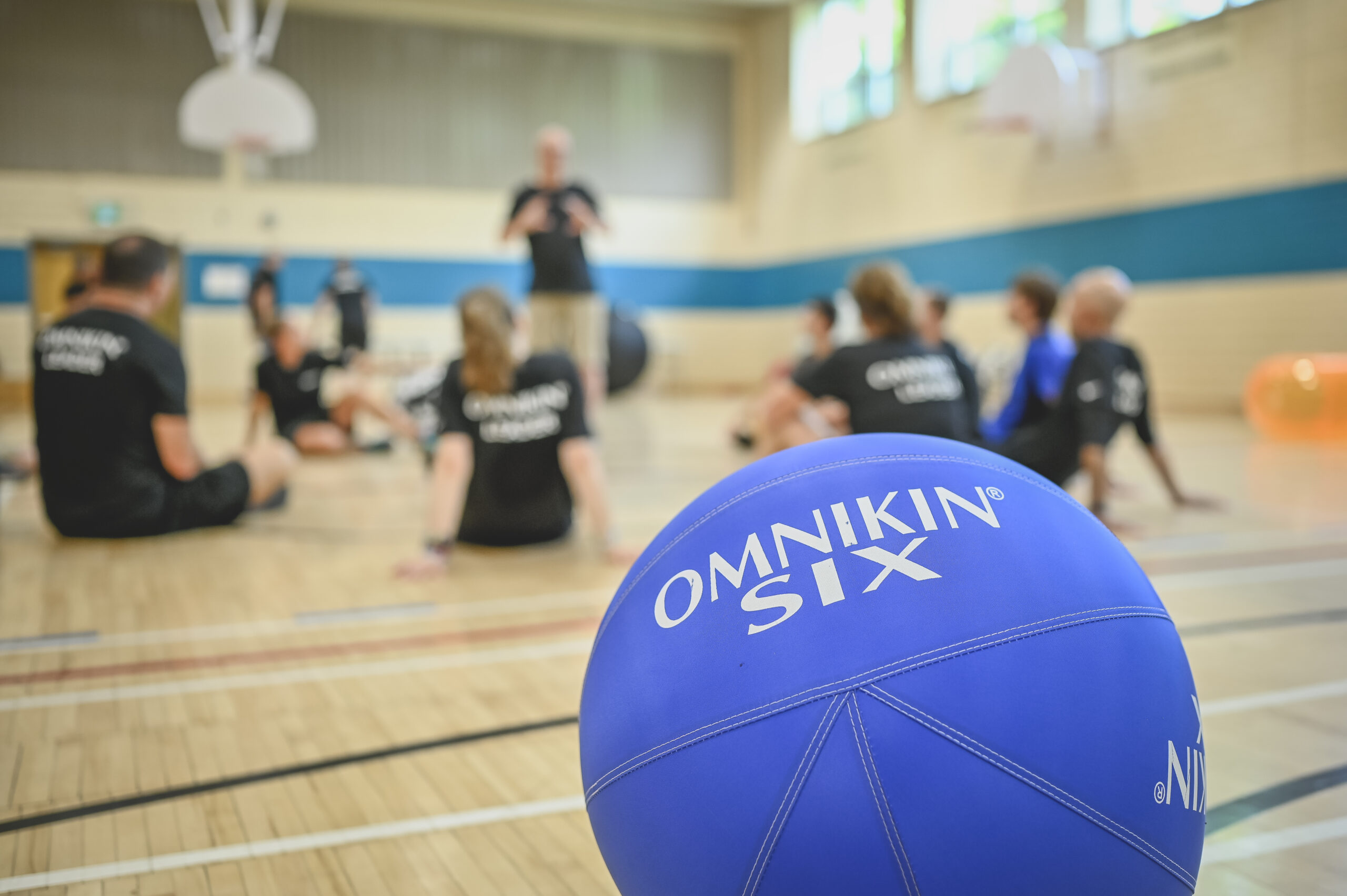
Gaining hands-on experience with adaptive PE equipment
Omnikin’s adaptive equipment, such as oversized balls and lightweight items, is designed to make PE safe and enjoyable for all. Workshop participants get hands-on training, practicing how to use this equipment to enhance students’ physical engagement and success.
By investing in specialized adaptive PE training, PE teachers not only gain valuable tools but also cultivate a lasting impact on their students’ lives.
To take the next step in making your PE classes truly inclusive, consider partnering with Omnikin for a dynamic, hands-on workshop tailored for your PD Days.
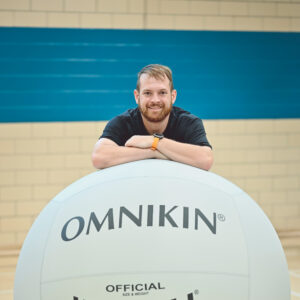
Physical education teacher
International Workshop development coordinator
LinkedIn profile
